I was right. There have been a number of great new manga series this year. A cursory glance at some of the new volumes included in this week’s ComicList proves it.
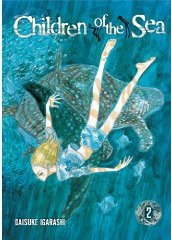 The founder of the feast this week’s is Viz’s Signature imprint, which leads things off with the second volume of Daisuke Igarashi’s Children of the Sea. It’s easily one of the most beautiful comics you’ll read this year, and Igarashi seems to be building an interesting contemporary fable about mysterious children and disappearing fish. You can read it online for free at Viz’s SIGIKKI site, but I like holding the actual object. Also, if lots of people buy Children of the Sea, we might get Igarashi’s Witches sometime in the future.
The founder of the feast this week’s is Viz’s Signature imprint, which leads things off with the second volume of Daisuke Igarashi’s Children of the Sea. It’s easily one of the most beautiful comics you’ll read this year, and Igarashi seems to be building an interesting contemporary fable about mysterious children and disappearing fish. You can read it online for free at Viz’s SIGIKKI site, but I like holding the actual object. Also, if lots of people buy Children of the Sea, we might get Igarashi’s Witches sometime in the future.
 Please don’t misunderstand me. I think Naoki Urasawa’s Pluto is a fine comic in every respect, easily one of the best of the year. It’s a wonderfully constructed thriller with a higher-than-average number of important things on its mind. I admire it tremendously, I really do. But I love Urasawa’s 20th Century Boys with its twists and turns, healthy doses of humor and wistfulness, and its energetic quirkiness. I also think it’s one of the best comics of the year, and the fact that it’s more… well… fun than Pluto pushes it just a note higher on my personal scale. The sixth volume of 20th Century Boys arrives this week.
Please don’t misunderstand me. I think Naoki Urasawa’s Pluto is a fine comic in every respect, easily one of the best of the year. It’s a wonderfully constructed thriller with a higher-than-average number of important things on its mind. I admire it tremendously, I really do. But I love Urasawa’s 20th Century Boys with its twists and turns, healthy doses of humor and wistfulness, and its energetic quirkiness. I also think it’s one of the best comics of the year, and the fact that it’s more… well… fun than Pluto pushes it just a note higher on my personal scale. The sixth volume of 20th Century Boys arrives this week.
 I’m still not entirely sure why the phrase “Fumi Yoshinaga’s most ambitious work to date” doesn’t make people lift their heads like deer becoming aware of a mighty predator crashing through the forest. Even her lighthearted comics have an enduring quality that’s kind of rare in mainstream entertainment. So I’m a little disappointed that Yoshinaga’s Ôoku: The Inner Chambers hasn’t cast a wider net among critics. Yes, bits of the translation are awkward, but for my money, there are few finer working cartoonists than Yoshinaga, and the opportunity to enjoy the acclaimed apex of her career to date is just so damned cool. The second volume of Ôoku graces better comic shops on Wednesday.
I’m still not entirely sure why the phrase “Fumi Yoshinaga’s most ambitious work to date” doesn’t make people lift their heads like deer becoming aware of a mighty predator crashing through the forest. Even her lighthearted comics have an enduring quality that’s kind of rare in mainstream entertainment. So I’m a little disappointed that Yoshinaga’s Ôoku: The Inner Chambers hasn’t cast a wider net among critics. Yes, bits of the translation are awkward, but for my money, there are few finer working cartoonists than Yoshinaga, and the opportunity to enjoy the acclaimed apex of her career to date is just so damned cool. The second volume of Ôoku graces better comic shops on Wednesday.
 I’m finally getting used to actually looking at Image’s listings, since they’re publishing some comics I’m really enjoying. (I thought I’d never have to do that again after they gave up on Glister. Who knew?) This week, it’s the fourth issue of spelunking thriller Underground, written by Jeff Parker, illustrated by Steve Leiber, and colored by Ron Chan. A determined ranger tries to protect a pristine cave from an unscrupulous developer and his well-armed minions.
I’m finally getting used to actually looking at Image’s listings, since they’re publishing some comics I’m really enjoying. (I thought I’d never have to do that again after they gave up on Glister. Who knew?) This week, it’s the fourth issue of spelunking thriller Underground, written by Jeff Parker, illustrated by Steve Leiber, and colored by Ron Chan. A determined ranger tries to protect a pristine cave from an unscrupulous developer and his well-armed minions.
 Oh, and while I’m not following the series myself, manga karma points must go to Del Rey for its rescue of Akimine Kimiyo’s Samurai Deeper Kyo. For those of you who don’t remember, Tokyopop had reached the thirty-fourth volume of this thirty-eight volume series before Kodansha reclaimed rights to all of its properties from Tokyopop. Lest its fans become profoundly (and understandably) embittered by that turn of events so close to the finish line, Del Rey is publishing two-volume collections of the final six volumes, the first of which arrives Wednesday.
Oh, and while I’m not following the series myself, manga karma points must go to Del Rey for its rescue of Akimine Kimiyo’s Samurai Deeper Kyo. For those of you who don’t remember, Tokyopop had reached the thirty-fourth volume of this thirty-eight volume series before Kodansha reclaimed rights to all of its properties from Tokyopop. Lest its fans become profoundly (and understandably) embittered by that turn of events so close to the finish line, Del Rey is publishing two-volume collections of the final six volumes, the first of which arrives Wednesday.









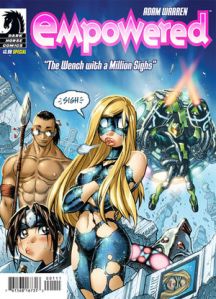















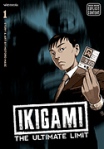
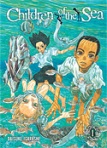
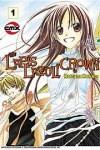





 Dark Horse releases
Dark Horse releases  I like Greek Mythology, and I thought George O’Connor’s Journey Into Mohawk Country had a lot of strong points. So I’ll definitely give O’Connor’s
I like Greek Mythology, and I thought George O’Connor’s Journey Into Mohawk Country had a lot of strong points. So I’ll definitely give O’Connor’s 
 I can’t say that Mohiro Kitoh’s
I can’t say that Mohiro Kitoh’s  And now for the new volumes and new editions:
And now for the new volumes and new editions: It’s tough to pick a book of the week, as there’s interesting material in varied formats, but I ultimately have to settle on
It’s tough to pick a book of the week, as there’s interesting material in varied formats, but I ultimately have to settle on  Now, don’t get me wrong. I’m a fan of the books in Viz’s Signature line and an admirer of the imprint in general. I honestly can’t think of one I don’t at least enjoy. That said I do question the wisdom of unleashing quite this much product on the market at once. In addition to the aforementioned volume of Real, there’s
Now, don’t get me wrong. I’m a fan of the books in Viz’s Signature line and an admirer of the imprint in general. I honestly can’t think of one I don’t at least enjoy. That said I do question the wisdom of unleashing quite this much product on the market at once. In addition to the aforementioned volume of Real, there’s 
 I enjoyed
I enjoyed  I’m always happy to see more of Adam Warren’s brilliant
I’m always happy to see more of Adam Warren’s brilliant  It’s always wise to keep an eye on CMX’s shôjo offerings, as they’re usually pretty charming. New this month is
It’s always wise to keep an eye on CMX’s shôjo offerings, as they’re usually pretty charming. New this month is  A few years back, the big blogosphere hit was Jim Rugg and Brian Marucca’s
A few years back, the big blogosphere hit was Jim Rugg and Brian Marucca’s  You may know
You may know  I’m crazy about Rick Geary’s Treasury books, but I’m cheap so I wait for the paperback versions. Happily, NBM slates the soft-cover version Geary’s A Treasury of 20th Century Murder: Famous Players for publication. It examines the murder of early Hollywood director William Desmond Taylor. (Page 271.)
I’m crazy about Rick Geary’s Treasury books, but I’m cheap so I wait for the paperback versions. Happily, NBM slates the soft-cover version Geary’s A Treasury of 20th Century Murder: Famous Players for publication. It examines the murder of early Hollywood director William Desmond Taylor. (Page 271.)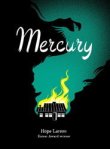 The gifted Hope Larson delivers her next work,
The gifted Hope Larson delivers her next work,  Page 301 promises more goodness from Viz Signature. My poor, poor wallet, how you will weep. New to the imprint are Natsume Ono’s
Page 301 promises more goodness from Viz Signature. My poor, poor wallet, how you will weep. New to the imprint are Natsume Ono’s  And, of course, Viz triggers squeals across the internet by offering more manga from Fumi Yoshinaga. It’s
And, of course, Viz triggers squeals across the internet by offering more manga from Fumi Yoshinaga. It’s